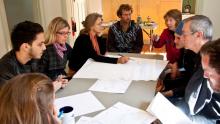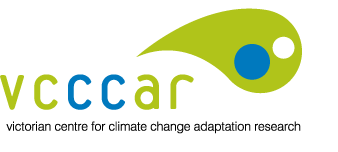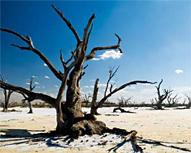MOJO article: Adaptation the key to coping with climate change

To read the full article by Richard Proudlove in the Monash Journalism publication MOJO, click here.
Everyday life will have to adapt in all kinds of ways as climate change affects our world. The Victorian Centre for Climate Change Adaptation Research is working hard to make sure we’re ready.
When the Abbot Government shut down the Climate Change Commission, it appeared to many that a gulf had suddenly been created between Australian politicians and climate change academics and experts. As director of the Victorian Centre for Climate Change Adaptation Research (VCCCAR), Professor Rod Keenan has spent the past four years attempting to bridge that gulf within the state.
VCCCAR, a partnership between five Victorian universities, was established with Victorian Government funding in 2009. It conducts research and provides recommendations to the government on how to tackle the impacts of climate change, such as the prospect of rising sea levels, increasing temperatures and more extreme weather events.
Keenan believes that the greatest achievement of VCCCAR so far has been to build a trusting and co-operative relationship between the participating universities and the Victorian Government. “In terms of having an impact on policy, it is about building those partnerships and relationships,” he says.
Keenan describes himself as a broker. “I do a lot of listening to people in government and translating that into research, or talk to researchers and then bring them together with the relevant people from the state, local government, the private sector and the community. “We provide a space where researchers and people from government agencies, local government and in some cases consultancies and private enterprises, who may not normally get together, can talk about climate related issues in an informal setting.”
He has learnt that research must address a range of perspectives held across different government departments. “Climate change has been considered as a knowledge deficit problem, where it is assumed that if you give the decision-makers the information, they will automatically make the right choices. Increasingly people are seeing that the problem will be framed differently by different people. We are moving to an approach to research that is about a continual interaction to exchange information on how each party sees the problem and come up with solutions using that understanding of different perspectives.”


